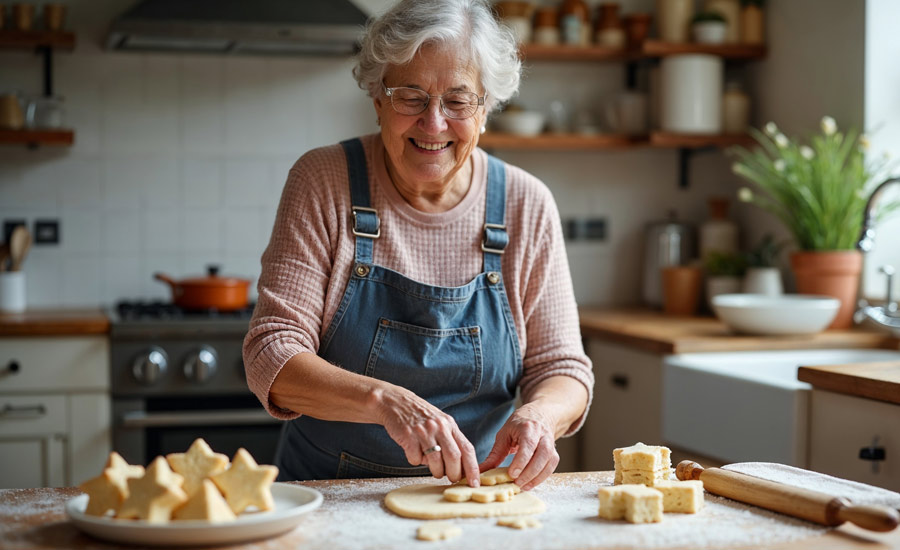The Ultimate Guide to Balancing Care and Independence in a Residential Home

Have you recently spoken to your loved one about moving into a care home? They’re likely worried about many things, but a common concern is losing independence.
Thanks to strict CQC regulations and years of staff experience, these days, care homes don’t take over.
In this article, we’ll discuss exactly how residential homes can get it right and how you, as a family member, can help ensure your loved one stays in control of their day-to-day life.
How do Care Homes Help Residents Maintain Independence?
In modern care homes, residents have the freedom to make everyday choices, such as what to wear, when to wake up and what activities to join, while offering just the right level of support in the background.
Whether it’s help with mobility, personal care or managing medication, support is modified to what each person actually needs. Staff are trained to encourage, not take over.
Routines, care plans and social life are all up to the residents which helps them stay in control and feel more like themselves. The goal is to make sure people can live safely while still doing as much for themselves as possible.
Common Myths About Independence in Care Homes
There’s a lot of misunderstanding about what life in a care home actually looks like:
#1 You lose all your freedom
You don’t. Residents still choose how they spend their time, what they wear, when they eat and who they spend time with. A good home builds in freedom, making sure your loved one feels like themselves.
#2 Everything is done for you
While this may have been true many years ago, this isn’t true when it comes to modern care homes. The idea is to offer help and assistance when they need it and step back where it’s not. Residents are actually encouraged to do what they can, in their own time, with a bit of backup when they want it.
#3 There’s no flexibility
It’s not surprising that care homes do have routines, but they’re certainly not rigid. If your loved one prefers a slower morning, they get it. If they want to skip the group activity and have a quiet hour in the garden, that will be respected.
#4 It’s easy to lose your sense of self
Actually, a lot of residents rediscover parts of themselves they hadn’t had space for before. Getting stuck into hobbies, socialising and being part of a community again — it all helps. Staff take the time to get to know each person, not just what care they need, but what makes them tick.
#5 You don’t get privacy
Residents have their own space, and it’s respected. Rooms are private. Staff knock. Personal boundaries matter and they’re taken seriously.
#6 Once you’re in, that’s it
People’s needs change and care plans change with them. Residents and families are involved in those conversations regularly. Nothing is set in stone.
When Support Is Independence
It’s easy to think of independence as doing everything on your own, but that’s not always how it works, especially as people get older.
Sometimes, having the right kind of support is exactly what helps someone stay independent. It gives them the freedom to keep doing the things they enjoy without the stress or risk of doing it alone.
For example, if your loved one’s struggling with fiddly buttons or shoes, a bit of help means they can still choose their outfit and still get ready themselves, they just don’t have to wrestle with the frustrating bits.
The same goes for things like walking safely, taking medication or remembering appointments. A bit of backup at the right time can stop small problems from turning into big ones – and that means your loved one can stay in control.
So no, support isn’t the end of independence. In many cases, it’s exactly what helps someone hold onto it.
Questions to Ask When Choosing a Care Home
If independence is something that matters to your loved one, and let’s be honest, it usually is, you’ll want to make sure the care home you choose actually supports that.
Here are some helpful questions to ask potential homes:
“How do you help residents stay independent?”
You’re looking for practical examples here – not vague promises. Do they encourage people to do things for themselves? Are routines flexible? How do they decide when to step in and when to step back?
“What kind of choices can residents make day to day?”
Ask about food, activities and personal routines – anything that would help your loved one keep some control over their daily life.
“How involved are residents in their own care plans?”
Good homes will involve residents and families in regular reviews. This should be an ongoing conversation.
“What does support actually look like here?”
Get a sense of whether the staff are trained to encourage independence or whether they tend to take over. You want a team that supports without smothering.
“Can we visit and see how daily life works?”
Before moving to a care home, a visit says more than a brochure ever could. If you can, spend some time there. Watch how staff interact with residents. See if people seem engaged, at ease and part of the community.
The Right Support Makes All the Difference
It’s evident that moving into a care home doesn’t mean giving up control. When done right, the support offered actually helps people stay independent for longer.
As a family member, your role is just as important. Ask the right questions, stay involved and choose a home that sees your loved one as a person, not just a care plan.
Ready to explore...
